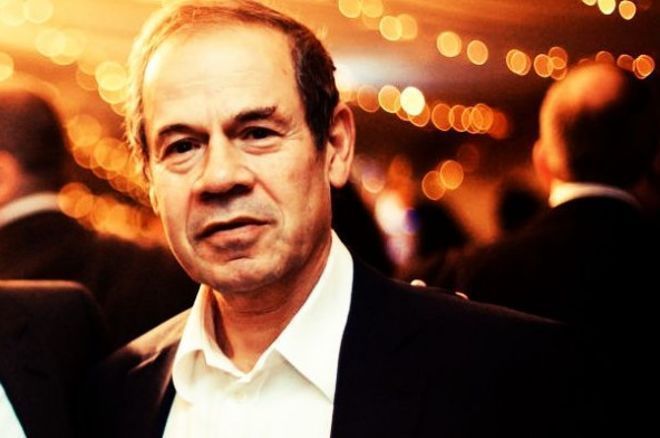
On Wednesday afternoon, the final throes of one of the darkest eras in poker’s history – “Black Friday” – took place. In a court in New York City, the final outstanding indictment from the 2011 actions by the U. S. Department of Justice was heard as Isai Scheinberg, the founder and former owner of PokerStars, stood in front of the court. After the formalities were concluded, Scheinberg had pled guilty to a variety of charges related to the operations of PokerStars and now faces up to five years in prison.
Prosecutors Throwing The Book at Scheinberg
Scheinberg stood in front of U. S. Magistrate Judge Sarah L. Cave on Wednesday, facing judgment on a case that dated back to 2011. One of 11 original indictments in the Department of Justice’s crackdown of online poker, Scheinberg had steadfastly refused to give up his freedom. As the years rolled by, however, Scheinberg became a solitary figure from the “Black Friday” indictments to remain “at large” and, with his age advancing and his inability to travel to Canada and the U. S. due to possible extradition, decided that it was time to end the case.
In January, the 73-year old Scheinberg worked out a deal with the DoJ where he would surrender to authorities in New York. At the time of his arraignment, Scheinberg pled not guilty to all charges against him, which included bank fraud, money laundering and illegal gambling. He was given a bond of $1 million and, after it was paid, he was released until trial.
Upon entering the court on Wednesday, it is likely that there was a deal negotiated to get Scheinberg to agree to plead guilty. That isn’t preventing the prosecutors in the case from seeking the maximum punishment, however. According to the Department of Justice, the sentencing will be held in front of Judge Lewis A. Kaplan and the prosecution is seeking the maximum five-year sentence; no date has been set for the sentencing.
“Black Friday” is Over
If Scheinberg is indeed sentenced to five years in prison, he would be by far the most severely punished of those who were indicted in the “Black Friday” case.
Three of those indicted, Utah banker John Campos, Chad Elie and payment processor Bradley Franzen, were arrested and charged within days of the April 15, 2011 shutdown of online poker in the U. S. Campos was sentenced to three months in prison for a singular gambling charge, while Elie received a five month sentence. Franzen plead guilty in May 2011 but appears to have escaped any punishment because he was a witness, as the payment processor for the online poker sites, for the prosecution in the other indictments.
At that time, the other persons involved in the case were out of the country and they proved to be a little harder for the Department of Justice to run down. Ira Rubin, arrested in Guatemala in late April 2011, plea bargained to three guilty charges of conspiracy to commit bank fraud. He was sentenced to the longest stint in prison, three years, because Judge Kaplan stated that Rubin was “an unreformed con man and fraudster (an indicator of how Kaplan will sentence Scheinberg?).”
In December 2011, Brent Buckley, the founder of Absolute Poker, pled guilty to “misleading banks” and was sentenced to 14 months in prison. In perhaps the strangest case regarding “Black Friday,” Raymond Bitar, the Chief Executive Officer of Full Tilt Poker, surrendered to authorities in July 2012. Reportedly in failing health and needing a heart transplant, Bitar was sentenced to time served and forfeiture of up to $40 million in assets (reportedly near death at the time, Bitar would marry…four years later, and is apparently living under the radar).
The final chapter in the “Black Friday” story was Scheinberg, who held out against turning himself into authorities even after the sale of the massive PokerStars operation to Amaya Gaming for $4.9 billion in 2014. Whether Judge Kaplan handles this case like Rubin – by dropping the hammer on Scheinberg – or like U. S. District Judge Loretta Preska handled the Bitar case remains to be seen. As no sentencing date has been set, that discussion could be ongoing between the prosecution and Scheinberg’s defense team.
























He deserves the whole time. The government gave him 5 years to stop his actions and concluded he was above the law.